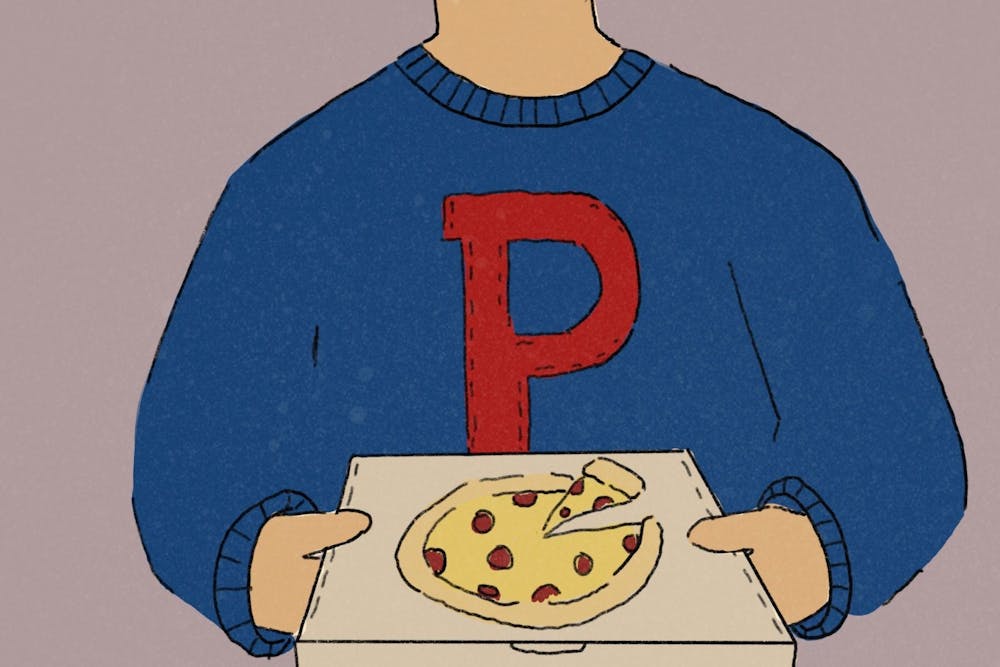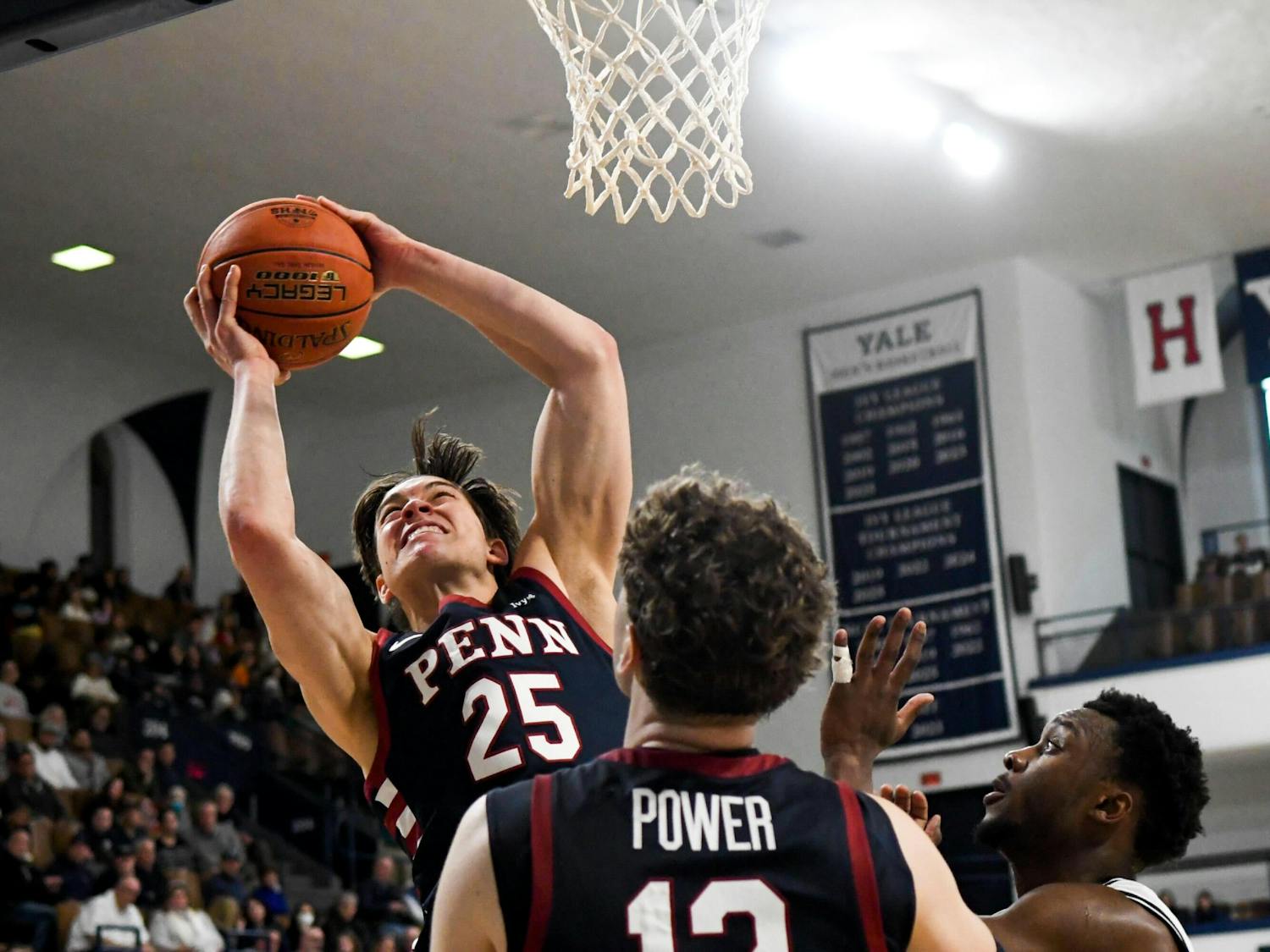For all of the 33 varsity teams at Penn, there are only two people in the Penn Athletics marketing office responsible for attracting fans to attend sporting events: Denise Fitzpatrick and Emily Jakimowicz.
It’s Fitzpatrick and Jakimowicz’s responsibility to devise creative and innovative ways to increase the relatively low attendance at athletics events, but at a school like Penn, they have their work cut out for them. For Penn students, there are many reasons to not attend sporting events: rigorous academics, lack of school spirit, and the appeal of other events around city are just a few.
So it's up to the pair to overcome these obstacles.
“There’s a weekly on-campus plan leading into every single game. We’re going on campus every week, whether it’s with our marketing staff or with coaches and student-athletes to interact with people and get them to go to games,” Fitzpatrick said.
Ever seen men’s basketball coach Steve Donahue giving out pizza in Huntsman Hall? Or women’s basketball coach Mike McLaughlin handing out shirts in Houston Hall? What about senior forward AJ Brodeur offering candy on Valentine’s Day? That’s the result of work from Fitzpatrick and Jakimowicz — the two are looking to build a personal relationship with teams and the rest of the Penn community.
From an administrative standpoint, the Penn Athletics marketing team works with different on-campus organizations one-on-one to engage with the community. Fitzpatrick and Jakimowicz partner with College Houses, class boards, veteran associations, performance groups, and the Undergraduate Assembly to promote a rapport between teams and the student body.
In addition to the on-campus groups, Penn Athletics partners with a third-party rights holder, JMI Sports, to secure sponsorships from companies such as La Colombe and Coca-Cola.
When fans attend games, Fitzpatrick and Jakimowicz want them to have the best experience possible. Of course, they cannot control the outcome of the game, but Fitzpatrick and Jakimowicz have found giveaways to be a great way to keep people engaged.
RELATED:
Live blog: Penn basketball vs. Harvard
Penn women's basketball sweeps Dartmouth for sixth straight Ivy League win
“Once we get you in the door, it’s our responsibility to make you have fun so you want to come back, so that’s how we are approaching this. That’s our philosophy,” Fitzpatrick said.
While it is important to get students to attend games, Fitzpatrick and Jakimowicz also look to get members of the greater Philadelphia area to support the Quakers. In order to compete with other sporting events in the city, Penn Athletics offers discounted group tickets and partners with community groups, often hosting them for an event or having them perform at halftime.
However, these tactics to incentivize attendance are not uniform. While Fitzpatrick and Jakimowicz target alumni, casual fans, and students to attend men’s games, they look for groups, youth, and families for women’s games.
“For the women, we are growing the student reach. Last week, we had someone generously donate 76ers suite tickets specifically to raffle at a women’s game to get more students to attend. We are looking to take advantage of opportunities like these for the women,” Fitzpatrick said.
Similarly, attendance at competitions for some of the smaller sports can be hard to achieve. Throughout the season, Fitzpatrick and Jakimowicz meet with coaches to discuss higher attendance, looking to implement the ideas that they might have. However, not every idea is a slam dunk.
“Something I didn’t see go well was the Red and Blue Bashes. They were these pregame parties for basketball and football games, but [they] just didn’t see the attendance and traction I expected from them. What I learned was that the amount of time students are willing to give us is always what I expected it to be,” Jakimowicz said.
On the other hand, some initiatives like the National Women in Sports event have seen rapid growth throughout the years, starting with 30 community participants and now growing to over 100.
While attendance at Penn Athletics events is relatively low compared to some other sports-crazed schools, the Quakers are still one of the leaders in the Ivy League.
“Having more students at games changes the atmosphere," Fitzpatrick said. "It creates way more buzz and excitement. It improves the student-athlete experience, playing in an environment that’s much more motivating. Everything we’re doing ties back to the concept of having fun and supporting each other."









